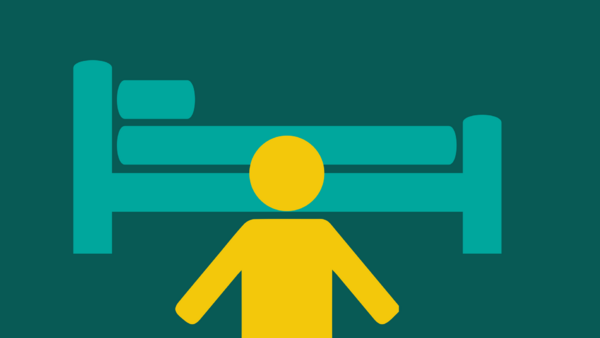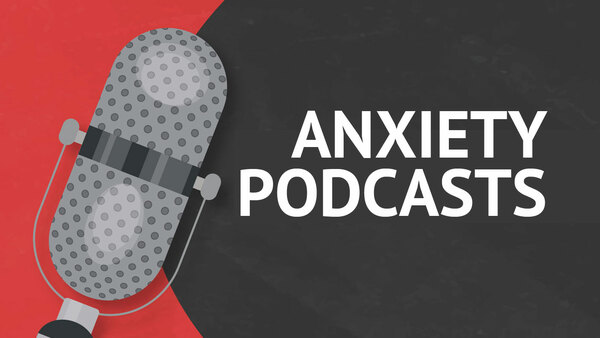
How to tell your family you don't like them and don't want to spend the holidays with them
Many people experience stress around the holiday season. And the source of this stress is having to see family members that may not be easy to get along with.
This can be for a range of reasons. Maybe they are difficult to get along with. Perhaps they are judgmental. Perhaps they don't understand your mental health needs.
A variety of remedies are often proposed including going for a walk, taking a long bath or drinking a vitamin-enriched smoothie. All of these are good things. But they miss the most effective way of removing holiday stress: telling these toxic people to fuck off.
Unfortunately, it's not as simple as telling them you're not coming to visit. It's complicated. They're your family. There are social and cultural obligations.
Therefore, we've put together a guide on telling your family that you don't like them, and don't want to spend the holidays with them.
How bad is it for my mental health?
The first question to ask yourself is "do I really need to avoid them?"
Let's divide our experiences between things that are difficult and things that are bad for us. For example, smoking is easy but bad for us. Facing our fears is hard, but its good for us in the long term.
There are a lot of benefits to spending time with other people, especially our family. Sure, it might not be enjoyable or pleasant, but you could reframe it as an exposure task. If it makes you feel uncomfortable, think of it as a pushing your boundaries task.
This is distinct from being bad for your mental health. If you come away with your self-esteem in tatters and spend the next week in bed, that qualifies as being bad for you. And, in that case, not seeing them is a valid option.
Whose happiness are you responsible for?
It's normal to feel guilty when not visiting your family. There are expectations that families will get together over the holiday period and you may feel that if you don't visit, you will be letting people down or being a toxic influence on their happiness.
At such times, remind yourself that nobody else should be responsible for one's happiness. It is not your job to make someone else happy. It is your job to make yourself happy.
Sure, it is nice to make other people feel good and contribute towards their happiness. But not at the expense of your own. It is unreasonable for someone else to expect you to be responsible for how they feel.
Tell them you're not coming
Once you've made the decision, you should let them know you are not going to see them.
This is best done in as personal a manner as possible. But that depends on how comfortable you feel. Face to face is great if you can manage it. Over the phone is a good compromise if you want some distance.
Text message or email is a last resort because it feels very impersonal and does not allow you to have a conversation about the issue.
Be honest about the pressure
One of the reasons that the holidays can be so stressful is that there is an implicit expectation that it is supposed to be a fun time of year and that everyone should get along.
This expectation can lead to what would ordinarily be an okay social encounter to be a stressful and difficult experience. And, if everyone else is having fun, this can lead to feelings of isolation and disconnection.
Verbalise all of this. Help them understand the feelings that are going on inside your head.
Use "I feel" statements
Using "I feel" is the magic that makes every statement valid. For example, you could say something:
"It would be better for my health to spend the holiday at home this year."
However, that is open for debate. People can argue the point, bring evidence for and against, and try to change your mind. Instead, let's add I feel to the start of the sentence.
"I feel it would be better for my health to spend the holiday at home this year."
Much better. How you feel is how you feel, and nobody can weight in on that or claim that you are incorrect. They are your feelings and not open for debate.
Stress that you're not cutting off contact
Family members may worry that this is the start of you cutting off contact with them and worry that you will become withdrawn and that they will not see you again in the future.
Make it clear that you will see them again soon after the holidays are over.
Unless you are planning to cut off contact, in which case, tell them that, too.
Call it an experiment
People don't like change, especially at periods which contain lots of tradition, such as the holiday season. Changing something seems big and permanent.
You can deflate these concerns by framing it as an experiment. It's not that you're never going to see them during the holiday season again. It's that you're going to try it this year and see if it works. No decision has been made about future visits.
Prepare yourself for some negative feelings
Whatever you do, you will probably end up with some negative feelings.
If you follow through and avoid visiting, you may feel some guilt for not doing so and wonder whether you made the right decision.
If you do visit them, despite thinking that you shouldn't, you may feel like you were weak or that you are unable to make positive changes in your life.
Either way, remind yourself that this is one incident and that this does not dictate your future. It really is an experiment to see what change is like. And change doesn't always happen easily, or the first time you try it. Be kind to yourself and remind yourself that you are trying your best.
Summary
For me, the holidays are a time to take a break and spend some time with people I like and get on with. But not everyone is so lucky. Many people find this time of a year a stressful period.
If so, you need to decide whether this is an exposure task, one that is difficult but ultimately good for you, or a toxic experience, that has lasting damage on your mental health.
If it is the latter, it may be time to tell your family that you don't want to spend the holidays with them. If so, follow the step-by-step guide outlined above.
Related articles
Metadata
Published 21 December 2018. Written by Chris Worfolk.

